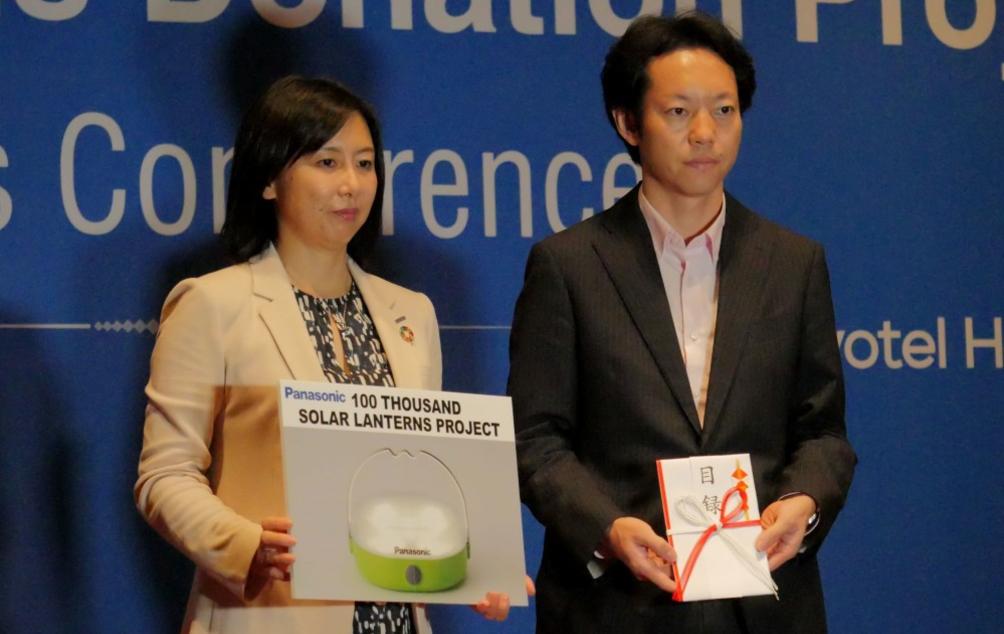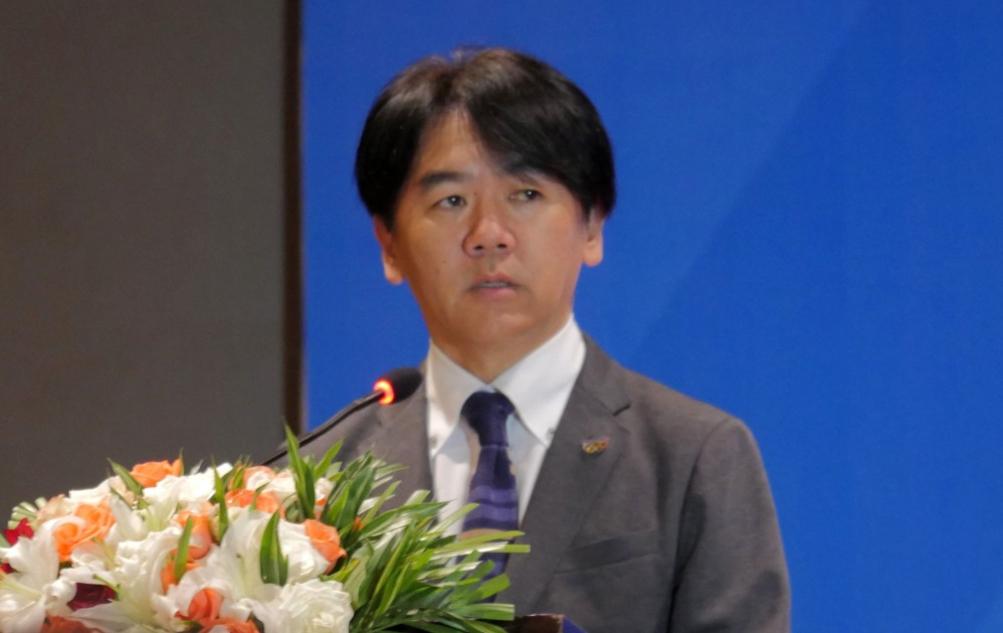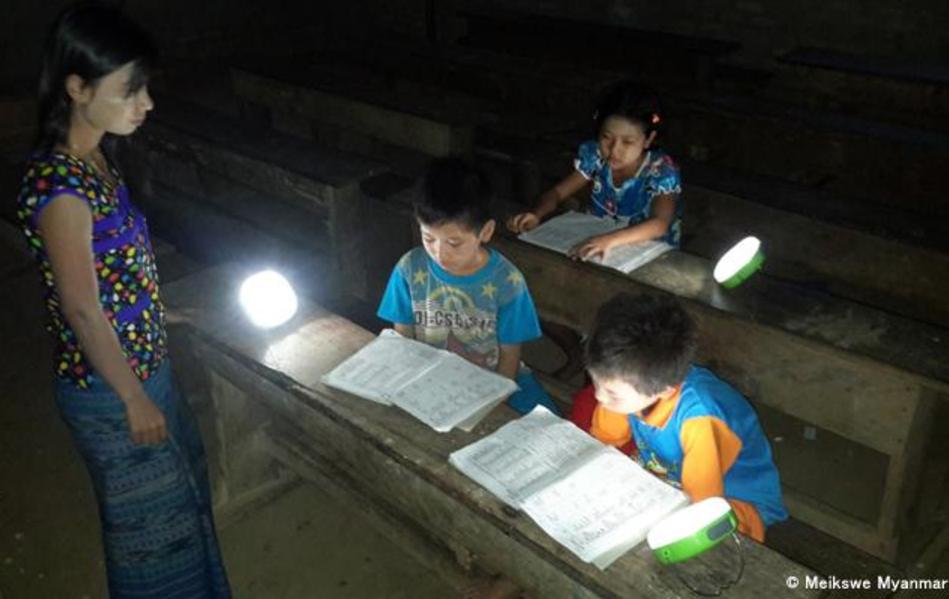
Panasonic Corporation has been committed to its "100 Thousand Solar Lantern Project" that aims to donate 100,000 solar lanterns to people living in off-grid areas by its 100th anniversary in 2018. This year marks the final year of the project. To date, approximately 87,000 solar lanterns have been donated in 22 countries since its debut in 2012.
Yangon, Myanmar - September 19, 2017 - In its latest round of giving, Panasonic donated 3,060 solar lanterns to 9 Humanitarian & Non-Governmental Organizations in Myanmar at a ceremony held at the Novotel Yangon Max, raising the total number of donations to the Southeast Asian nation to 14,924.
At the ceremony, Hisakazu Maeda, Chief Representative of Panasonic Asia Pacific Myanmar Branch Office, said "Since our foundation in 1918, we have established and remained true to our management philosophy of contributing to society through our business activities as a public entity of society. We aim to help resolve these social challenges by donating our solar lanterns to Humanitarian and Non-Governmental Organizations working in the areas of Education, Healthcare, and other areas. I had a chance to visit one of those non-electrified villages and I sincerely believe the solar lantern from Panasonic has played a big role in improving the quality of life of those at the base of economic pyramid." We look forward to hearing good reports from the recipient organizations about how these solar lanterns have been put to use."
With the initiative of the 100,000 Solar Lanterns Project, Panasonic has improved social issues such as education, health and poverty.In Myanmar, solar lanterns allowed students to study in the evening from 6:00pm to 9:00pm before final exams, which led to significant academic improvement where some primary students scored 100%, while some middle school students scored 94%.
An estimated 1.2 billion people worldwide still live without access to electricity. Panasonic will continue to bring light and electricity to people living in off-grid areas to meet the Sustainable Development Goals (SDGs) of the United Nations and achieve "A Better Life, A Better World."
The 9 Organizations that Received Solar Lanterns in Myanmar (in alphabetical order)
- All Country Agency for Rural Development
- Association for Rengein Tanjoji International Cooperation
- Community Association for Rural Development
- Greater Mekong Initiative
- Language and Social Development Organization
- Likhy Social Development Committee
- Meikswe Myanmar
- Myanmar Red Cross Society
- PH-Japan (PH-People's HOPE Japan)
The 100 Thousand Solar Lanterns Project
Since the first lantern donation in Myanmar in 2012, about 87,000 solar lanterns have been donated to 22 developing countries in Asia and Africa as of September 2017. These bright solar lanterns facilitate medical, educational, and economic activities at night, thus eliminating the harmful effects of kerosene lamps, and reducing fuel costs that burden households.
- Disclaimer:
- We would like to note that Panasonic Newsroom is not a place to address personal Customer Service issues. Even though this is not the forum, Panasonic is always eager to resolve your concerns. Our local customer services contacts can be found at Global Support or you can see our list of Social Media Accounts to find the right channel for your queries and concerns.
Related Links
Related News
- Panasonic Donates Over 2,000 Solar Lanterns to Cambodian NPOs, Bringing Total Number of Donations to 13,516 Throughout Five Years
- New Employee Delivers Light to an Non-electrified Region - 100,000 Solar Lantern Project (Jul 20, 2017)
- Panasonic Donates a Total of 1,584 Solar Lanterns to South Africa, Swaziland, and Lesotho (Mar 24, 2017)
Photos
Panasonic donated 3,060 solar lanterns to 9 Humanitarian & Non-Governmental Organizations in Myanmar










